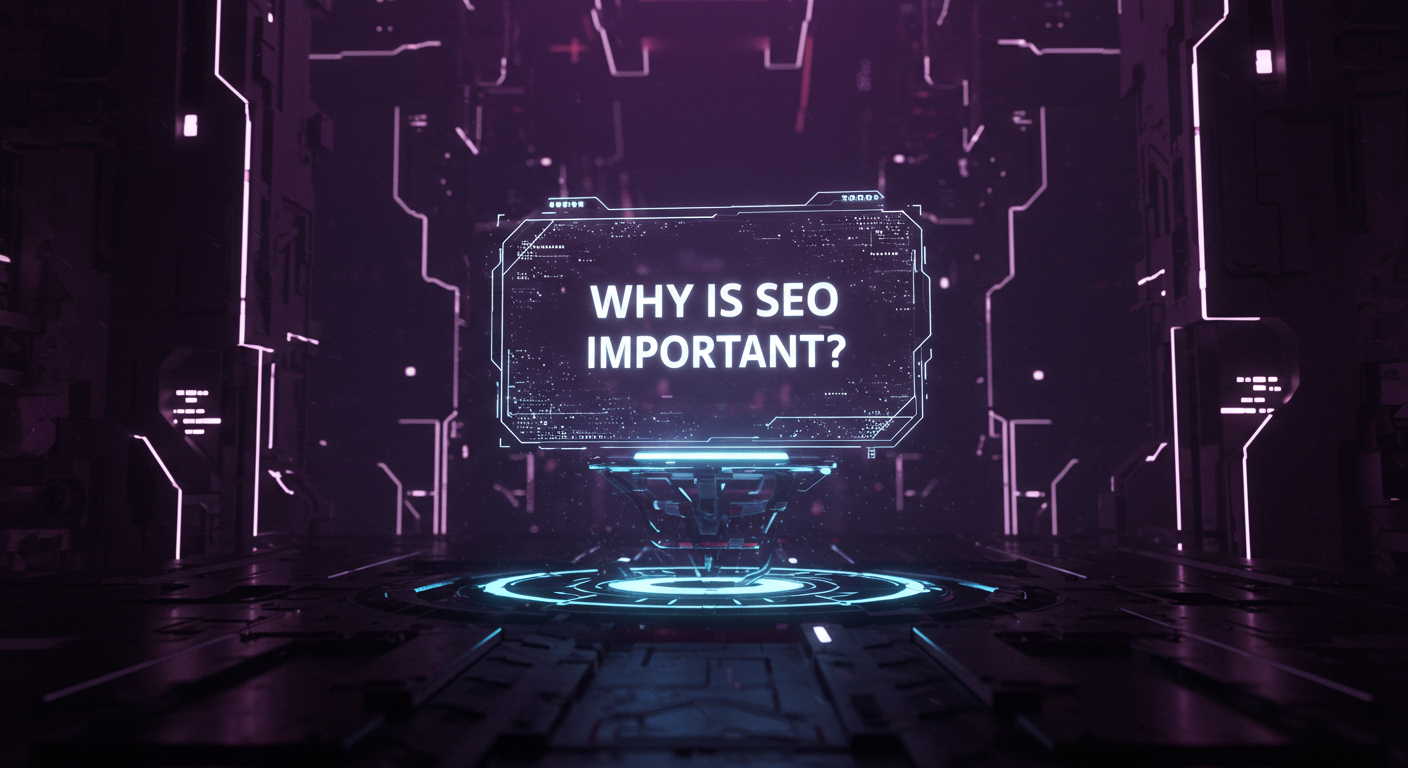
Why is SEO Important in 2025? The Key Trends Shaping Your Digital Strategy
If your business isn’t prioritising SEO in 2025, you’re essentially leaving money on the table. The digital landscape is evolving faster than ever, and search engine optimisation remains the cornerstone of online visibility. But here’s the catch: SEO in 2025 isn’t just about keywords and backlinks. It’s about adapting to smarter algorithms, user behaviour shifts, and emerging technologies. Let’s break down why SEO matters now more than ever—and how to stay ahead.
1. AI-Powered Search: The Brain Behind Modern SEO
Search engines have become frighteningly intuitive. Thanks to AI advancements like Google’s Gemini and OpenAI’s GPT-5, algorithms now understand context, nuance, and even user intent better than ever. For businesses, this means:
- Content must answer complex, conversational queries (think “What’s the best CRM software for small UK businesses?” instead of “CRM software”).
- AI-generated content alone won’t cut it—search engines prioritise original insights backed by expertise.
For example, optimising for AI-driven search involves creating detailed, structured content that aligns with how people naturally phrase questions. This ties into how to find SEO keywords using tools that analyse semantic relationships and long-tail phrases.
2. Voice Search: “Hey, Google…” Isn’t Just for Questions
Voice-activated devices now account for over 30% of all searches. By 2025, this will grow as smart speakers and voice assistants dominate households. Voice search optimisation requires:
- Natural language: Phrases like “Where can I get affordable SEO services near me?” instead of “cheap SEO UK.”
- Local SEO focus: 58% of voice searches are for local businesses. Tools like our local SEO checklist can help you dominate regional rankings.
3. E-E-A-T: The Trust Factor Google Loves
Expertise, Experience, Authoritativeness, and Trustworthiness (E-E-A-T) aren’t just buzzwords—they’re ranking pillars. Google’s 2024 updates doubled down on rewarding content created by verified experts. To leverage E-E-A-T:
- Showcase credentials (e.g., “Tom Wilson Digital’s SEO strategies have boosted traffic by 200% for UK dentists”).
- Use data-driven insights and cite reputable sources.
This aligns with the 8 SEO principles every business must know, including transparency and user-first content.
4. Mobile-First Indexing: Speed Isn’t Optional
Google’s mobile-first indexing means your mobile site’s performance dictates rankings. Key priorities include:
- Core Web Vitals: Aim for a loading speed under 2 seconds.
- Streamlined navigation and thumb-friendly design.
A poorly optimised mobile site? Kiss your rankings goodbye. For actionable tips, explore our guide to what makes a good website design.
5. UX: Where SEO Meets Human Psychology
Search engines now track user behaviour—like bounce rates and dwell time—to gauge content quality. A seamless UX involves:
- Intuitive site structure.
- Engaging visuals and interactive elements.
- Fast, frictionless journeys from search to conversion.
This ties into conversion rate optimisation, where UX improvements directly boost SEO and sales.
6. Content Depth: Go Big or Go Home
Surface-level articles won’t rank. Google’s 2025 algorithms favour comprehensive guides that cover topics exhaustively. For instance:
- A 2,000-word guide on “SEO for solicitors” outperforms a generic “SEO tips” post.
- Use content clusters to interlink related articles (e.g., linking “how to create a digital marketing strategy” within an SEO-focused piece).
7. Privacy and Personalisation: Walking the Tightrope
With third-party cookies phased out, businesses must rely on first-party data. SEO strategies should:
- Leverage consented data for personalised content.
- Prioritise privacy compliance (e.g., GDPR).
8. Social SEO: TikTok Is the New Google
43% of Gen Z users now search on TikTok and Instagram instead of Google. Optimising for social search includes:
- Keyword-rich captions and hashtags.
- Short-form video content answering common queries.
9. Backlinks: Quality Over Quantity
AI can now detect spammy links. Focus on earning backlinks through:
- Original research (e.g., “2025 SEO Trends Report”).
- Collaborative content with industry experts.
For a deep dive, see our guide to what is link building.
10. Organic Search Dominance: Why SEO Still Rules
Paid ads might drive quick wins, but organic search delivers 53% of all website traffic. The ROI is clear: businesses investing in SEO see 3x higher conversion rates than those relying solely on PPC.
Traditional SEO vs. 2025 SEO: A Quick Comparison
| Factor | Traditional SEO | 2025 SEO |
|---|---|---|
| Keyword Focus | Exact-match phrases | Semantic, intent-based queries |
| Content | 500-word blog posts | 2,000+ word pillar pages |
| Backlinks | Quantity-driven | Authority and relevance |
| User Experience | Desktop-centric | Mobile-first, speed-optimised |
| Data Sources | Third-party cookies | First-party data |
Final Thoughts
SEO in 2025 isn’t about gaming the system—it’s about aligning with where technology and user behaviour are headed. From AI-driven content to TikTok SEO, the businesses that thrive will be those adapting early. Whether you’re a local plumber or a multinational SaaS company, the principles remain the same: prioritise expertise, user experience, and agility.
FAQs
SEO is a long-term strategy, and it can take anywhere from 3 to 6 months to start seeing significant results, depending on your competition and the quality of your efforts.
SEO and paid advertising serve different purposes. While SEO provides long-term, sustainable results, paid advertising delivers immediate traffic. Ideally, a combination of both works best.
You can measure the success of your SEO efforts using tools like Google Analytics and Google Search Console. Key metrics to track include organic traffic, keyword rankings, and conversion rates.
While it’s possible to learn and implement SEO yourself, hiring an expert can save time and ensure that your website is fully optimised for search engines.
Absolutely! As long as people are using search engines to find information, products, and services, SEO will remain a critical part of digital marketing.










